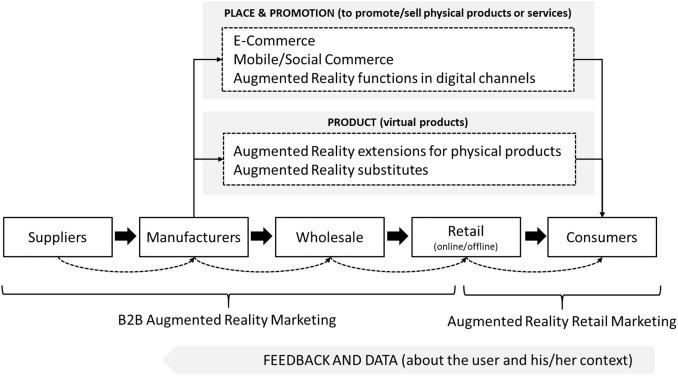Top Skills and Career Guide for Implementation Specialists in Learning Platforms
Introduction
As education technology continues too transform how students learn and teachers instruct,the need for skilled professionals to bridge technology and pedagogy has never been greater. One pivotal role in this domain is that of the Implementation Specialist in learning platforms. Whether in universities, colleges, or K-12 schools, these specialists ensure educational institutions leverage digital tools efficiently for an enhanced teaching and learning experience. If you aspire to become an Implementation Specialist in education technology, this thorough career guide will help you understand the top skills required, typical responsibilities, benefits of the role, and practical tips for success.
Who is an Implementation Specialist in Learning Platforms?
An Implementation Specialist in learning platforms is responsible for the deployment, configuration, and ongoing support of educational technologies such as Learning Management Systems (LMS), digital courseware, and other software solutions in academic institutions. Thay act as the key liaison among educators,students,IT departments,and vendors,ensuring seamless integration and adoption of new technology tools in the learning ecosystem.
Key Roles and Responsibilities
- Platform Configuration and Customization: Tailoring learning platforms like Moodle, Blackboard, or Canvas to meet the institution’s specific requirements.
- Stakeholder Training: Conducting training sessions for faculty, administrative staff, and students on using new technology effectively.
- Technical Support and Troubleshooting: Providing hands-on support, diagnosing issues, and working with vendors or internal IT to resolve problems promptly.
- Project Management: leading implementation projects, setting timelines, coordinating teams, and ensuring prosperous technology rollouts.
- Documentation and Reporting: Creating user guides and generating reports on usage, feedback, and performance metrics.
- Continuous Enhancement: Soliciting feedback and iterating on platform configuration to better meet users’ evolving needs.
Top Skills required for Implementation Specialists
To thrive as an Implementation Specialist in learning platforms, cultivating a specific skill set is essential.Below are some of the key skills that top employers in higher education, colleges, and schools look for:
Technical Competency
- Familiarity with Learning Management Systems (LMS): Experience with popular LMS platforms like Canvas, Blackboard, Moodle, or Schoology.
- Basic IT Skills: Understanding software installation, network basics, data migration, and system integration.
- Data Analytics: Competence in interpreting usage data to drive improvements in platform utilization and learning outcomes.
- Technical Troubleshooting: Ability to identify and resolve technical challenges efficiently.
Project Management
- Organizational Skills: Managing timelines, goals, and resources effectively for successful project execution.
- Adaptability: navigating change management and unexpected obstacles during implementations.
Interaction and Training
- Presentation Skills: Delivering clear and engaging training sessions to diverse stakeholders.
- Customer Service Orientation: Responsively addressing user concerns and providing excellent support.
- Instructional Design: Understanding how to connect platform features to educational objectives for improved learning experiences.
Interpersonal and Collaborative Skills
- Stakeholder Management: Liaising between faculty, students, management, and technology partners.
- Teamwork: Collaborating across departments to achieve strategic technology adoption goals.
Continuous Learning
- EdTech awareness: Staying updated with trends in educational technology,including new tools,integrations,and instructional strategies.
Educational Background and Certifications
- Educational Qualifications: Most roles require a Bachelor’s degree in education, instructional technology, computer science, data systems, or a related field. Advanced degrees or certifications are an asset for career growth.
- Relevant certifications: Certified Professional in Learning and Performance (CPLP), google Certified Educator, or platform-specific certifications (e.g., Blackboard Certified Trainer, Canvas Certified Educator).
- Professional Advancement: Attending workshops, industry conferences, and pursuing ongoing training enhances both technical and pedagogical expertise.
Benefits of a career as an Implementation Specialist in Learning Platforms
Working as an Implementation Specialist offers a unique opportunity to impact education while advancing your professional career. Here are some key advantages:
- High Demand: Schools, colleges, and universities are increasingly investing in digital transformation, fueling demand for skilled Implementation Specialists.
- Diverse Work Habitat: Engage with educators, students, and software vendors in dynamic and collaborative settings.
- Professional Growth: Opportunities to progress into roles such as EdTech Project Manager, Solutions Architect, or Education Technology Consultant.
- Meaningful Impact: Directly support improved learning experiences, accessibility, and educational outcomes.
- Skill Versatility: Acquire technical and interpersonal skills that are transferable to other IT or education-focused careers.
Career Path and Advancement Opportunities
The typical career path for an Implementation Specialist in learning platforms frequently enough starts with internships or junior-level support roles in IT, instructional technology, or academic services. As you gain experience configuring and administering platforms, new opportunities open up, such as:
- Senior Implementation Specialist
- EdTech Project Manager
- Technology Integration Specialist
- Instructional Technology Director
- Education Technology Consultant
continuous professional development through certifications, networking in professional associations, and staying updated with new technologies further accelerates career advancement.
Practical Tips for Aspiring Implementation Specialists
- Develop a Portfolio: Showcase your projects, LMS configurations, and training materials to demonstrate your capabilities to potential employers.
- Hone Communication Skills: Practice delivering technical concepts in clear, accessible language.
- Gain Hands-on Experience: Volunteer to assist with educational technology initiatives, or seek internships in academic IT departments or EdTech startups.
- Network: join professional groups for EdTech practitioners and participate in discussions or events.
- Stay Informed: Subscribe to trade publications, attend webinars, and follow industry thoght leaders on trends in education technology and learning platforms.
- Master Change Management: Understand the human side of technology adoption, including common challenges and proven strategies for successful transitions.
Conclusion
implementation Specialists in learning platforms have become indispensable in today’s digitally-driven education landscape. By bridging the gap between technology and effective teaching, these professionals empower schools, colleges, and universities to deliver rich, engaging educational experiences. If you’re passionate about both technology and education, and you excel at problem-solving, communication, and teamwork, embarking on a career as an Implementation Specialist could be your perfect path. With the right blend of technical expertise and soft skills, you’ll be well-positioned for a rewarding and impactful role in education technology.

